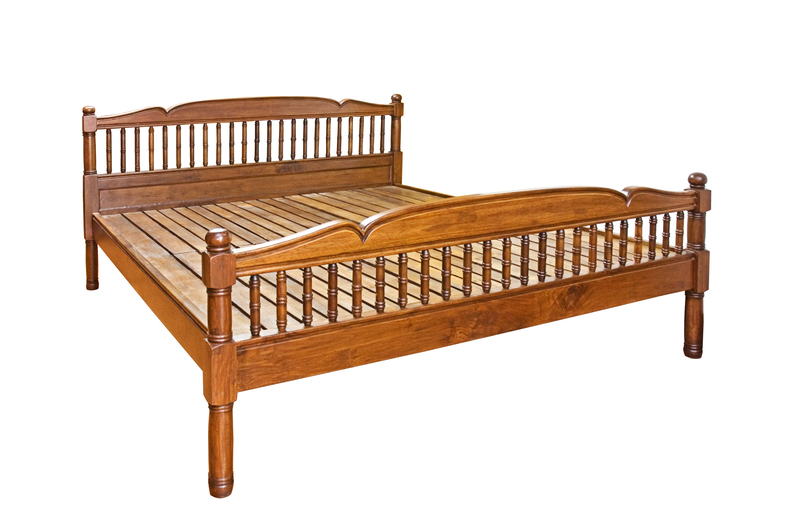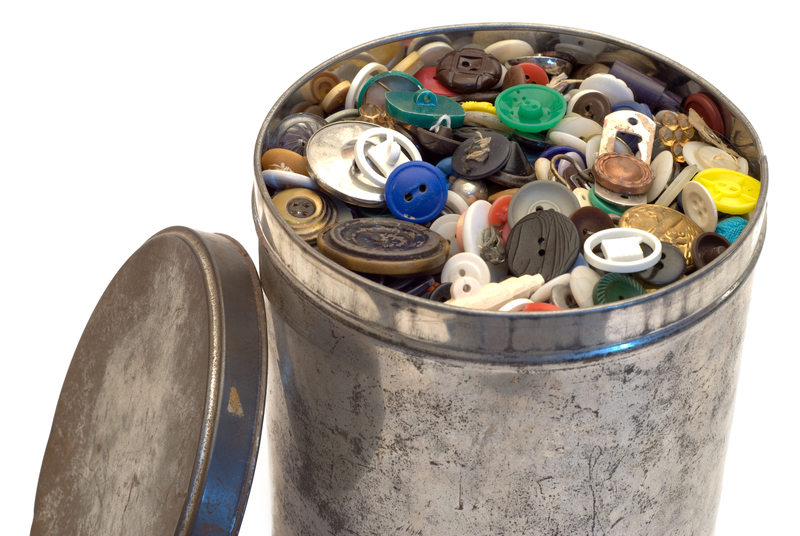Bulky Waste Items: Avoid Hidden Costs with These Savvy Hacks
Dealing with bulky waste items can be a daunting and expensive task if you're not aware of the possible hidden costs involved. Whether you are renovating your home, moving, or simply clearing out clutter, knowing how to dispose of large items in a cost-effective and environmentally friendly manner is essential. In this comprehensive guide, we reveal the secrets to avoiding unexpected charges and provide expert hacks for bulky waste disposal. Discover how to save money, minimize hassle, and stay eco-conscious when dealing with oversized rubbish.
Understanding Bulky Waste Items
Bulky waste items, often referred to as large waste items or oversized rubbish, include anything that doesn't fit into a standard bin or rubbish bag. These items are problematic for regular waste collection services due to their size or weight. Examples include:
- Furniture such as sofas, mattresses, and wardrobes
- Large appliances (white goods) like refrigerators, freezers, and washing machines
- Electronics such as televisions and computers
- Garden waste like branches, logs, and old garden furniture
- Building materials including bathtubs, doors, and flooring
Many homeowners underestimate the cost and effort involved in getting rid of these items. Hidden costs can quickly add up if you're not careful.

Hidden Costs of Bulky Waste Removal
When it comes to disposing of bulky items, it's not just the pickup fee you have to consider. Here are some of the most common hidden charges that can catch you out:
- Administrative Fees: Local councils and private companies may apply service and processing fees.
- Weight Surcharges: Heavier items can incur extra charges above a certain threshold.
- Handling or Dismantling Fees: Some services charge for removing items from inside your property or for breaking down large objects.
- Environmental Fees: Improper disposal, especially of electronic goods, may lead to environmental fines.
- Missed Collection Fees: If items are not left out as instructed, you could be charged for another collection.
- Travel Fees: Rural or difficult-to-access locations may come with a mileage surcharge.
Understanding these potential charges is the first step toward avoiding unnecessary expenses and ensuring a smooth bulky waste removal process.
Top Savvy Hacks to Save on Bulky Waste Disposal
Don't let the costs overwhelm you! Here are some savvy hacks to minimize or even eliminate bulky waste disposal fees:
1. Reuse, Donate, or Sell First
One person's trash is another's treasure. Consider the following before paying for removal:
- Donate: Many charities will collect large furniture or appliances for free if they're still in usable condition.
- Reuse: Get creative by upcycling old furniture or using broken wood for DIY projects.
- Sell: List your items on local marketplaces like Gumtree, Craigslist, Facebook Marketplace, or Freecycle.
Often, valuable bulky waste items can find a second life, saving you disposal costs and helping your local community.
2. Know Your Local Council's Bulky Item Collection Policies
Many councils offer free or subsidized bulky waste removal services several times a year. Check your local authority's website to understand:
- How many collections are permitted annually
- Which items are accepted (and which are excluded)
- Booking processes and lead times
- Rules for setting out items (time, location, dismantling requirements)
Plan ahead to utilize these services efficiently and avoid paying commercial providers.
3. Combine Items with Neighbors
Some services charge a flat fee per collection up to a certain volume or number of items. Team up with neighbors to:
- Share the cost of a private collection
- Split a skip for larger cleanouts
- Make bulk bookings for a discount
Pooling resources can result in significant cost savings on large waste and oversized items disposal.
4. Break Down Items Yourself
Handling and dismantling fees are common hidden extras. Where safe, dismantle large furniture or appliances yourself to:
- Reduce the overall volume and weight
- Fit items into your car for DIY disposal
- Avoid paying for labor
Be sure to use proper tools and safety equipment, and check disposal guidelines for certain materials.
5. DIY Disposal at Recycling Centres
Most local recycling or household waste sites accept bulky waste for free or a nominal fee. This method works best for those who:
- Can transport the item personally (consider asking friends or renting a van)
- Check guidelines to see what each center accepts--some require advance booking
Keep proof of residence handy, as centers may require this for entry.
6. Get Multiple Quotes for Private Collection
If council service isn't available or practical, always shop around for bulky item removal. Look for:
- Transparent pricing (watch for extra fees for stairs, dismantling, etc.)
- Verified disposal with waste transfer notes
- Reputable, insured operators (check reviews and licenses)
Having multiple quotes ensures you won't overpay and are aware of all costs upfront.
7. Check for Manufacturer or Retailer Take-Back Schemes
Some large retailers and appliance manufacturers offer take-back programs for old products (e.g., when delivering a new appliance).
- Ask about free or discounted collection when purchasing new furniture or electronics
- Check which items qualify and any conditions
This can be an easy way to dispose of large waste items responsibly without hidden charges.
8. Watch Out for Fly-Tipping Scams
Unfortunately, cheap removal offers can sometimes lead to illegal dumping. Use only legitimate, licensed waste carriers. The consequences of using an unlicensed provider include:
- Fines for environmental offenses (even if you didn't dump the waste yourself!)
- Loss of money if the provider disappears
- Environmental damage and community harm
Always ask for proof of licensing or registration before handing over your items.
9. Separate Different Waste Types
Sorting your bulky waste by type (wood, metal, electronics, textiles) can reduce costs. Collectors often charge less when waste is pre-sorted, and you can even get paid for scrap metal or working appliances.
10. Schedule Efficiently to Maximize Allowances
If entitled to multiple council collections per year, plan your cleanouts so you don't waste a slot on a half-load. Time your disposal:
- After major events like renovations, moves, or seasonal cleanings
- When neighbors also have items to remove
Strategic scheduling can help you use your bulky waste allowances more effectively.
Common Bulky Waste Disposal Mistakes -- And How to Avoid Them
Understanding the most frequent errors people make when disposing of oversized rubbish can save you time and money:
- Booking without comparing prices: Always get at least two quotes from private companies.
- Ignoring local rules: Different municipalities have strict requirements--check before setting out waste to avoid fines.
- Leaving waste out too early or too late: Mistimed items may not be picked up and could incur additional charges or fines.
- Not checking for free alternatives: Always exhaust donation and retailer take-back schemes before paying.
- Using uninsured or unlicensed carriers: You risk not only extra charges but also legal consequences.
- Forgetting about specialist waste: Items like fridges, TVs, or hazardous materials often require special disposal.
Green Tips: Eco-Friendly Disposal of Bulky Items
Beyond just money, sustainable bulky waste disposal protects the environment and keeps items out of landfills. Here's how to be eco-savvy:
- Choose recycling-centric collection services: Some companies guarantee high recycling rates for bulky items.
- Upcycle or repurpose: Old furniture can become garden planters, shelving, or art projects.
- Donate to local charities: Many organizations refurbish furniture for those in need.
- Use swap shops or online give-away groups: Platforms like Freecycle keep items in circulation.
These choices can help minimize the carbon footprint of your large waste disposal and benefit your local community, too.

Frequently Asked Questions About Bulky Waste Items
-
What is classified as bulky waste?
Bulky waste refers to items too large for regular bins, typically including furniture, appliances, large electronics, garden debris, and construction materials. -
Can I leave bulky waste on the curb anytime?
No. Most councils have strict pickup schedules and rules. Unauthorised dumping can result in fines. -
Does my council charge for bulky waste collection?
Policies vary -- some offer free annual pickups, others charge per item or per load. Check online or call your council's waste services for details. -
Are there items that can't be collected as bulky waste?
Yes, hazardous materials (paint, chemicals), car parts, some electronics, and construction debris may not be accepted curbside. -
What if my bulky waste is still in good condition?
Always try donation or resale options before scheduling removal. Many charities need furniture and appliances for families in need.
Conclusion: Outsmart Hidden Costs on Bulky Waste Items
Dealing with the disposal of bulky waste items doesn't need to be a costly or stressful chore. By understanding the potential hidden costs and using these savvy hacks, you can streamline your large waste removal, protect your budget, and help the environment. Remember to prioritize reuse, donation, and recycling wherever possible, and always check local guidelines before booking any removal service. With a little preparation and smart planning, you'll avoid surprises and turn bulky waste disposal into a hassle-free process.
Ready to clear out your clutter? Use these tips to tackle those bulky waste items and enjoy a cleaner, greener, and more cost-effective outcome!
